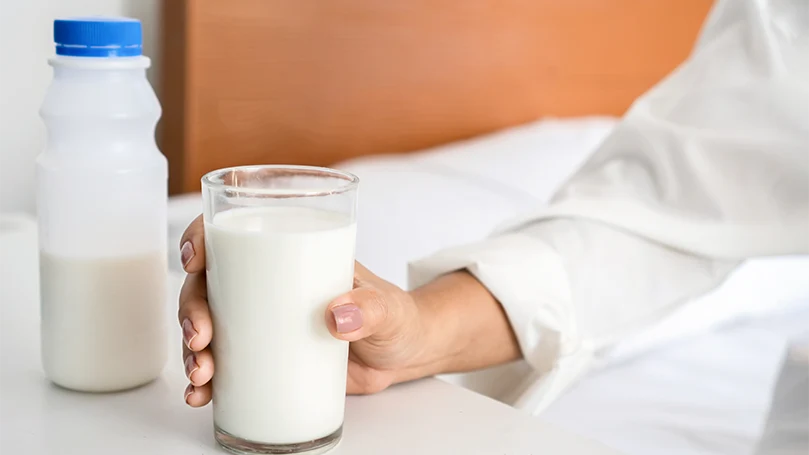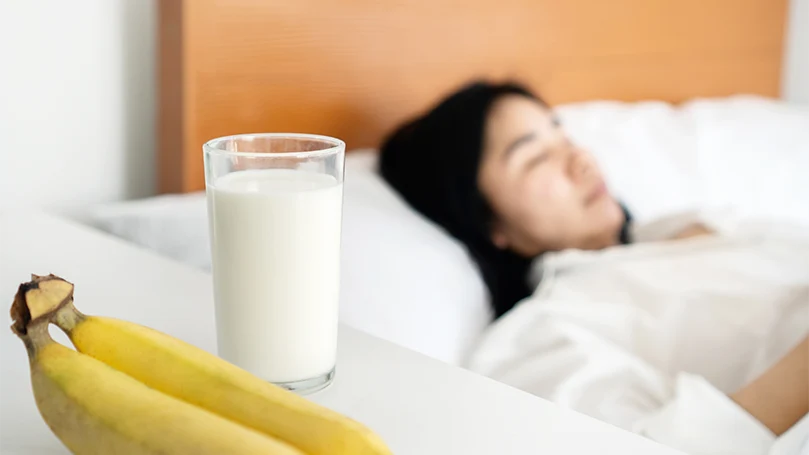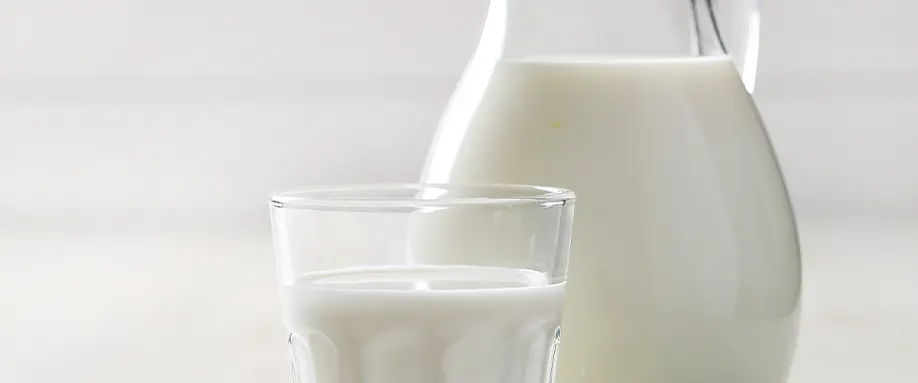How come warm milk makes you sleepy?
Some people will tell you that this is all about associating our childhood memories of peace and comfort when we would fall asleep quickly after a warm glass of milk. Memories of us being children having a cup of warm milk before getting kissed good night and tucked into bed are some of our most cherished memories. You can't argue that it's memories like these that help us calm down and feel safe. According to one school of thought, it's just a simple form of association that helps us fall asleep.

On the other hand, we have folks claiming that it is tryptophan found in milk that helps us fall asleep faster.
Tryptophan is an essential amino acid. As such, it can't be created in our bodies, but it must be ingested through diet. According to research, tryptophan and tryptophan-rich foods enhance sleep in the following way.
Tryptophan helps our bodies synthesise a chemical called serotonin. We've all heard of serotonin, a compound responsible for happiness. But what most of us haven't heard about it is that our body can convert it into melatonin. Melatonin is a sleep hormone responsible for a healthy sleep cycle and regulating circadian rhythm.
Is it advised to drink milk before bed at all?
One of the things we kind of have to ask ourselves is – is it even good to drink milk before bed? Are there actual sleep quality or health benefits to it?
Various studies in recent years have shown that milk might not be as good and healthy as we once thought it to be. Add onto it the fact that almost 70% of the entire world population is lactose intolerant. Then, you'll get a firm ground to stand on when questioning the benefits of drinking milk before bed.

Essentially, there are many drawbacks to drinking milk before bed other than potential stomach aches due to lactose and blood sugar crashes leading to fragmented sleep, nightmares, or a general decrease in the overall sleep quality.
Even though milk consumption could ease your trouble falling asleep, at the same time, it could decrease the quality of your sleep in the aforementioned ways. So, for the vast majority of people, staying off the milk before bed might actually be better than drinking it.
What happens to our bodies when we drink warm milk before bedtime?
We've already gone through the amino acid tryptophan aiding the creation of serotonin which is later converted into melatonin – so we won't go back there. In fact, according to world-renowned scientists – “Tryptophan has to compete with other large neutral amino acids — like leucine, isoleucine, tyrosine, phenylalanine and valine — to cross the blood-brain barrier to have any effects on sleep”.
Essentially, they're trying to say that there might be some benefits to drinking cow's milk before bed. However, that may not be enough to actually put us to sleep or make a significant difference.
Instead, let's talk about other things that happen when we're drinking warm milk.
Promoting a healthy sleep cycle
Currently, there is no evidence that a glass of warm or cold milk contains enough tryptophan (or melatonin) to actually induce sleepiness or help you get enough sleep. However, if drinking warm milk is a part of your bedtime routine, that could help aid and promote a healthy sleep cycle, which would result in better sleep and a good night's rest. But, at that point, non-dairy options, like soy milk, almond milk (also tryptophan-rich), green tea, or other herbal teas could do the same.

Psychological effect
A warm beverage, whether it's an herbal tea or a glass of milk, will have a calming psychological effect on your mind and body. We've mentioned invoking childhood memories and having a bedtime routine could all lead to positive psychological effects that could promote sleep, but it's also the warmth that puts us in the mood. A warm bath and a warm nighttime beverage are a recipe for a good night's sleep simply because they're soothing on their own.

What if I mix warm milk and honey?
You can mix honey with milk for plenty of other benefits like improved digestion and skin health, but as far as actual sleep quality benefits – there is hardly any evidence to support the theory that adding honey into milk will help you sleep better. It'll taste delicious, but that's about it.
So, does warm milk help you sleep better in the end?
While it is undeniable that warm milk will help you to get a full night of restorative sleep, it is hard to actually put a pin in this and say – it works perfectly.
It helps. It truly does. But maybe not to an extent we were led to believe in.

The good thing is, as a part of a sleep hygiene routine, milk's a pretty decent choice. It shouldn't cause you any trouble as long as you decide on lactose-free or almond milk, and as long as you believe it'll help you – you'll get your restful night of sleep any day of the week.












